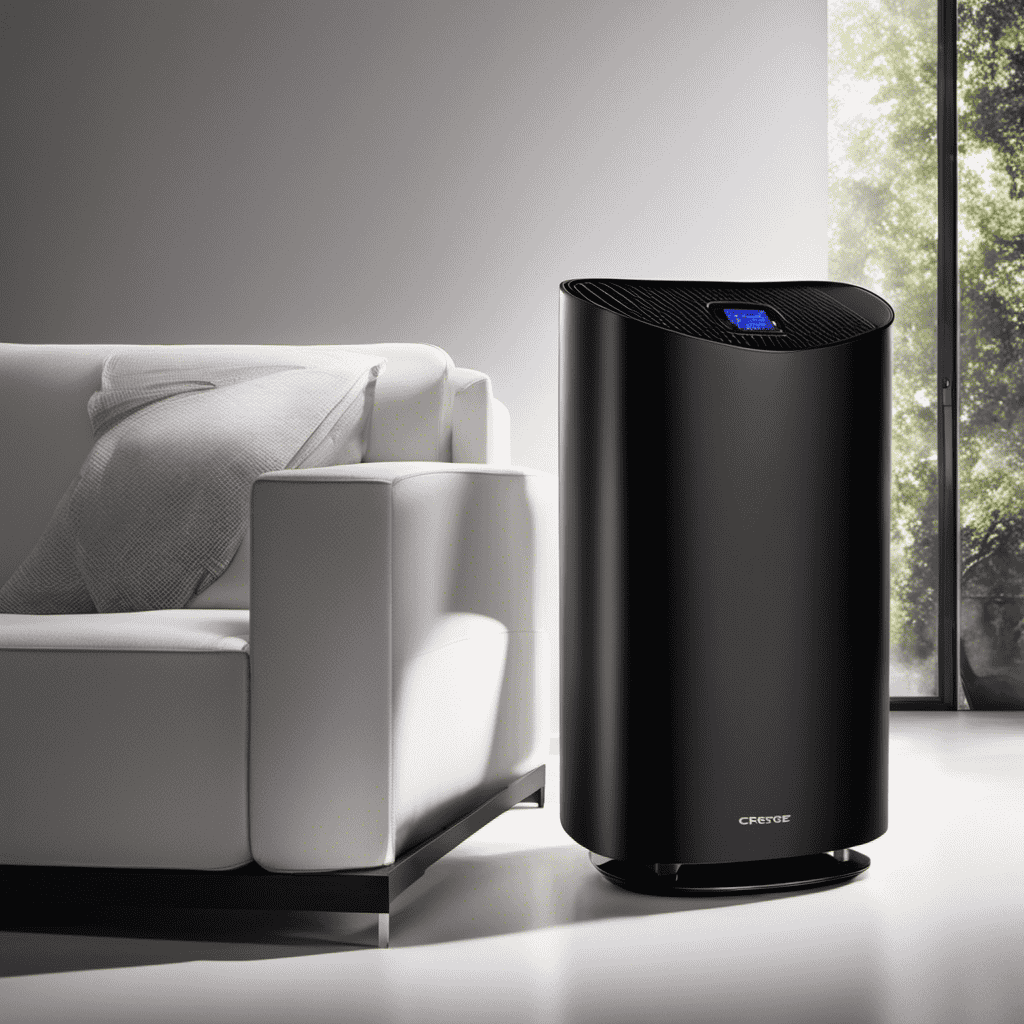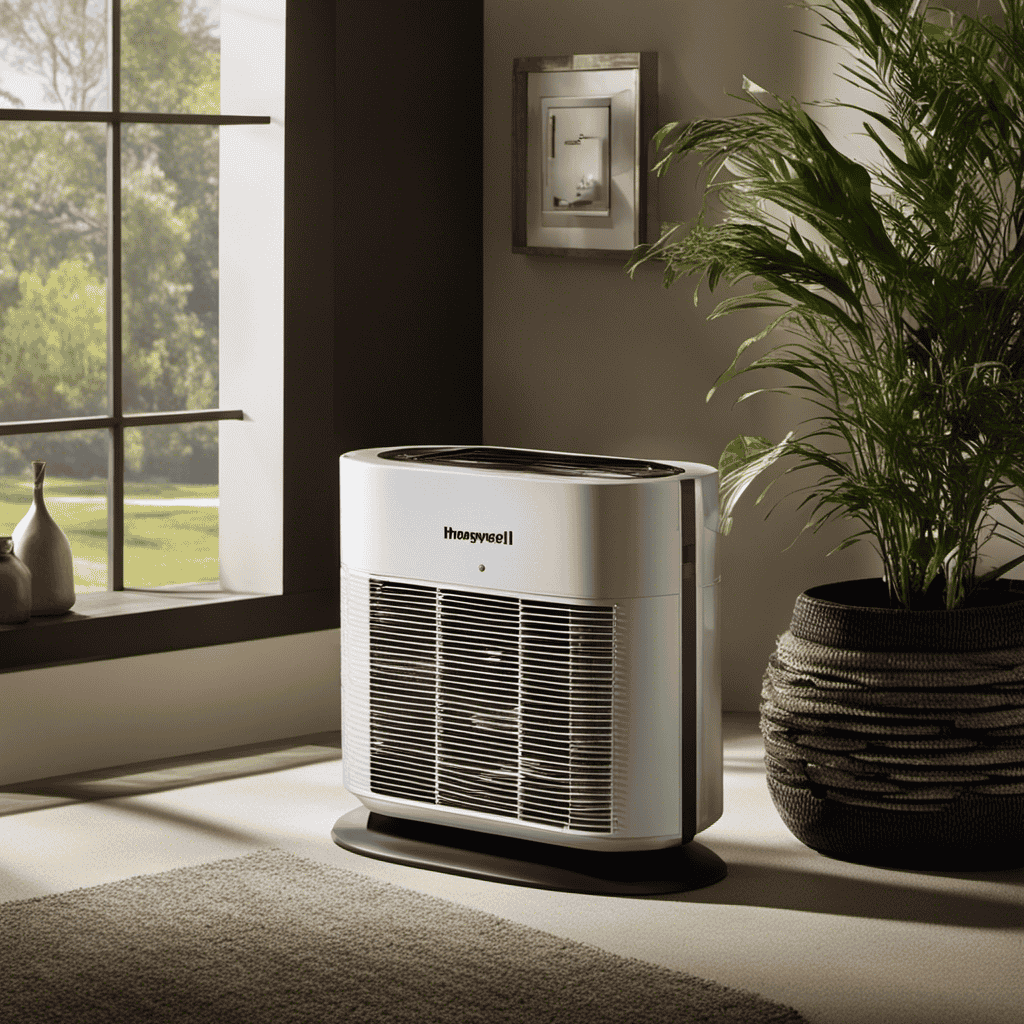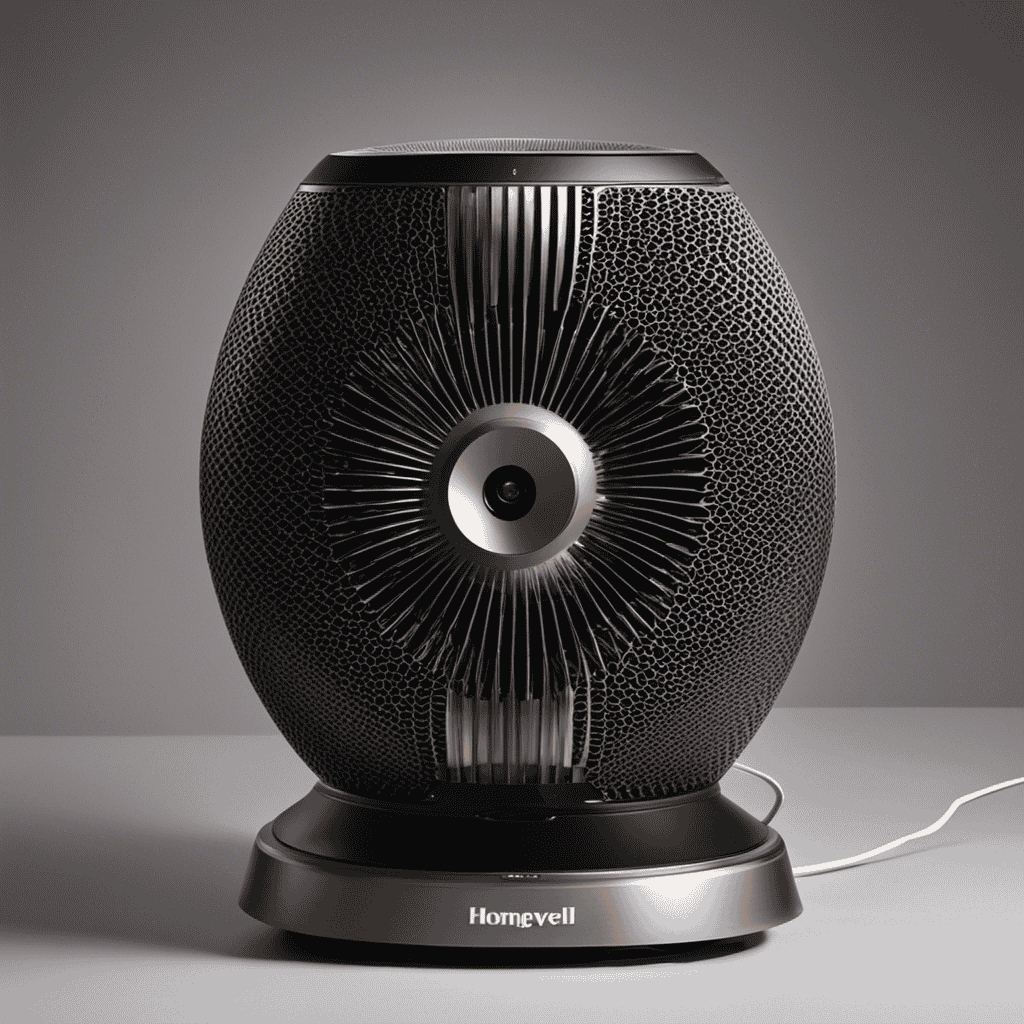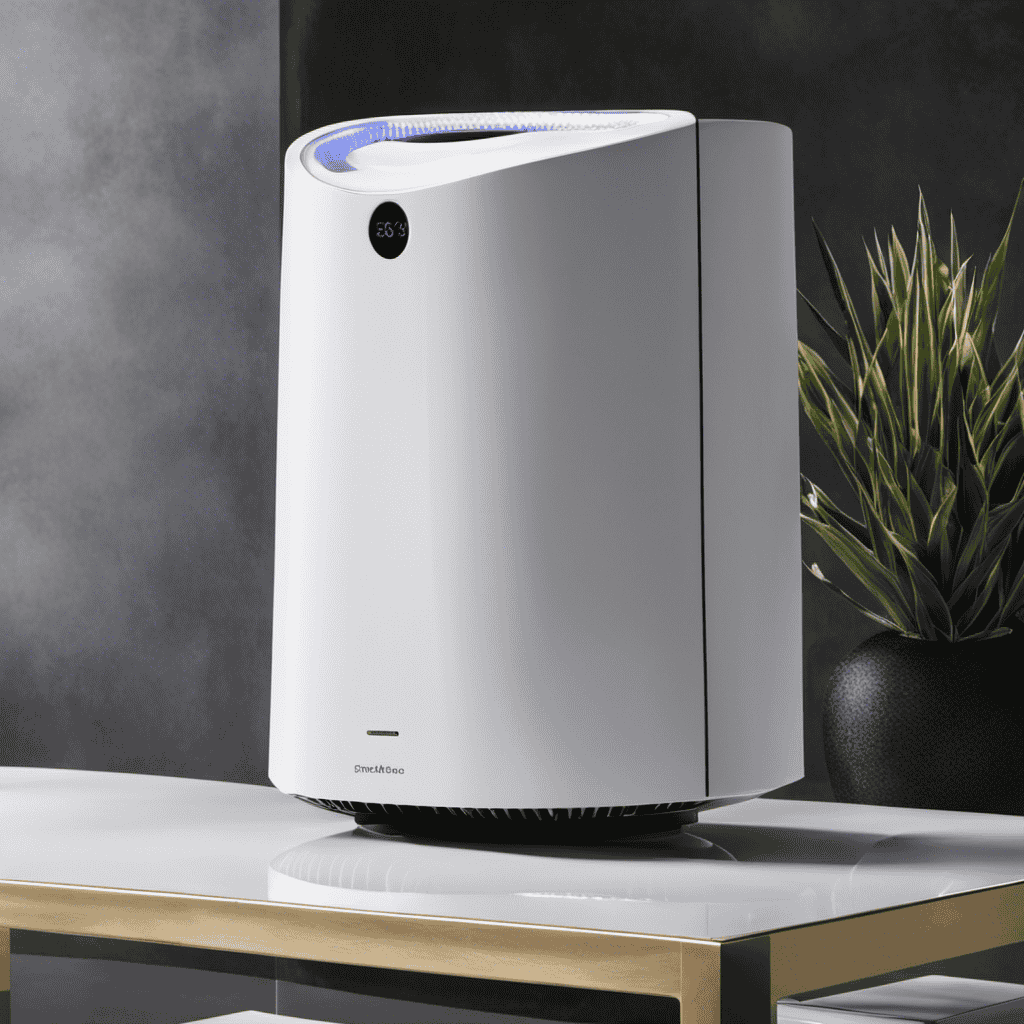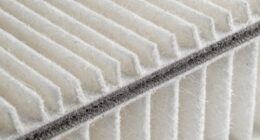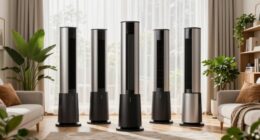As I sit in my office, the scent of black plastic wafts through the air from my reliable air purifier. Intrigued by the aroma, I am drawn to explore the science behind this captivating odor.
In this article, we will explore the factors that contribute to the smell of black plastic in air purifiers, the potential health concerns associated with it, and strategies to minimize the odor.
Additionally, we will discuss alternative materials that can be used in air purifier construction.
Join me on this informative journey as we unravel the mystery of why black plastic smells in air purifiers.
Key Takeaways
- The smell in air purifiers is caused by chemical reactions in black plastic.
- Regular cleaning and filter replacement are necessary to minimize health risks.
- Using odor-absorbing materials can help minimize the smell and keep the air fresh.
- Bamboo and stainless steel offer eco-friendly options for air purifier construction, promoting sustainability.
The Science Behind the Odor
The smell in the air purifier is caused by the chemical reactions occurring in the black plastic. When air purifier technology is used, the air passes through a series of filters to remove impurities.
One of these filters is made of activated carbon, which is typically housed in a black plastic casing. Activated carbon has a high surface area and is known for its ability to adsorb odors and chemicals from the air.
The chemical reactions happening in the black plastic occur when the odorous molecules come into contact with the activated carbon. These molecules are then trapped within the carbon’s pores, effectively removing them from the air.
This process is what causes the distinct odor associated with air purifiers.
Factors That Contribute to the Smell
One factor that can contribute to that odor is if you’ve been using your air purifier for a long time without cleaning it regularly. When an air purifier is not cleaned frequently, dust, dirt, and other particles can accumulate on the internal components and filters. This buildup can lead to a musty or unpleasant smell. Additionally, the accumulation of moisture from the air can create a breeding ground for mold and mildew, which can also cause odors.
To tackle this issue, there are a few solutions you can try:
- Clean the air purifier regularly by following the manufacturer’s instructions.
- Replace the filters as recommended by the manufacturer to ensure optimal performance.
- Use air purifiers with antimicrobial features to prevent the growth of odor-causing bacteria and fungi.
- Consider placing the air purifier in a well-ventilated area to reduce the buildup of moisture and odors.
Health Concerns Associated With the Odor
Regularly cleaning your air purifier can help alleviate any health concerns associated with the odor. The smell emitted from black plastic in an air purifier can pose health risks and negatively impact indoor air quality. When black plastic is exposed to heat, it releases volatile organic compounds (VOCs) into the air. These VOCs can irritate the respiratory system, trigger allergies, and even lead to long-term health problems. To better understand the potential health risks, consider the table below that outlines the main health concerns associated with the odor emitted from black plastic in an air purifier:
| Health Risks |
|---|
| Respiratory irritation |
| Allergic reactions |
| Long-term health problems |
Strategies for Minimizing the Smell
To reduce the impact on our health, we can implement strategies for minimizing the odor emitted by an air purifier. Here are some maintenance tips that can help with odor reduction:
-
Regularly clean the air purifier: Dust, dirt, and other particles can accumulate inside the purifier, leading to unpleasant smells. Cleaning the unit regularly can help eliminate these odors.
-
Replace filters as needed: Over time, filters can become clogged and ineffective, which can result in the release of unpleasant odors. It’s important to follow the manufacturer’s guidelines for filter replacement to ensure optimal performance and reduce odor.
-
Use odor-absorbing materials: Placing odor-absorbing materials, such as activated charcoal or baking soda, near the air purifier can help neutralize any lingering smells. These materials can absorb and eliminate odors, leaving the air fresh and clean.
Alternative Materials for Air Purifier Construction
Using alternative materials, such as bamboo or stainless steel, can provide a more eco-friendly and durable option for constructing air purifiers. These sustainable options not only help reduce our carbon footprint but also offer cost-effective solutions in the long run.
Bamboo is a renewable resource that grows quickly and requires less energy to produce than traditional materials like plastic or metal. It is also naturally antimicrobial, making it an ideal choice for air purifiers.
Stainless steel, on the other hand, is highly durable and resistant to corrosion, ensuring the longevity of the air purifier. Additionally, both bamboo and stainless steel can be recycled, further reducing waste and promoting a circular economy.
Can Different Types of Smells in Air Purifiers Indicate a Problem?
When your air purifier smells like straw, it could indicate a potential problem. Musty or moldy smells may suggest a buildup of bacteria in the filter or ducts. Burning or electrical smells could mean a mechanical issue. It’s important to address these odors to ensure your air purifier is working effectively.
Frequently Asked Questions
Are All Black Plastic Air Purifiers Known to Have an Unpleasant Smell?
Yes, black plastic air purifiers can have an unpleasant smell due to the materials used. However, this can be mitigated by using odor elimination techniques such as activated carbon filters or regular cleaning.
Can the Smell From Black Plastic Air Purifiers Be Harmful to Humans?
The smell from black plastic air purifiers can be harmful to humans due to potential chemical emissions. The potential causes could be off-gassing or low-quality materials. Potential solutions include using air purifiers made from safer materials.
Are There Any Health Risks Associated With Using Black Plastic Air Purifiers?
There may be health effects associated with using black plastic air purifiers, but it depends on the specific chemicals emitted. It’s important to consider the odor reduction capabilities and potential risks before using them.
What Are Some Common Strategies to Reduce or Eliminate the Smell From Black Plastic Air Purifiers?
There are several strategies to eliminate the smell from black plastic air purifiers. One way is to clean the unit regularly and use odor-eliminating products. Another option is to ventilate the room or use air fresheners to mask the unpleasant odor.
What Are Some Alternative Materials That Can Be Used to Construct Air Purifiers, Besides Black Plastic?
When it comes to air purifiers, there are sustainable materials and eco-friendly options that can be used besides black plastic. These alternatives not only improve air quality but also eliminate any unpleasant odors.
Conclusion
As I sit here, contemplating the lingering scent of black plastic in my air purifier, I am reminded of the hidden complexities that exist within the seemingly mundane.
This odor, a symbol of the materials used in its construction, serves as a reminder of the potential health concerns associated with our daily choices. However, armed with knowledge and strategies for minimizing the smell, we can navigate this fragrant world with confidence.
Let us explore alternative materials for air purifiers, paving the way for a cleaner and fresher future.
